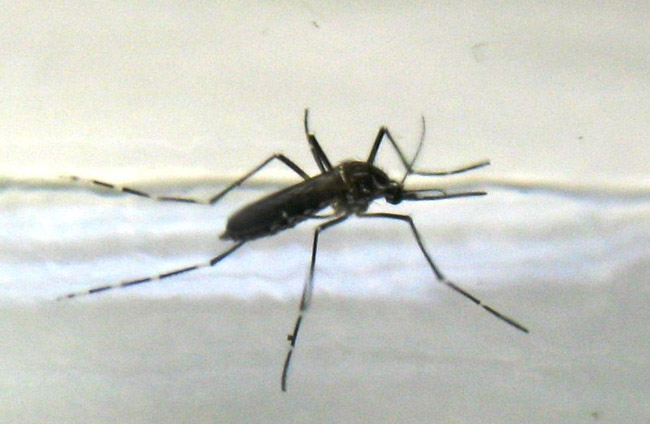
Health officials say a mosquito-borne illness that had afflicted Floridians who traveled to the Caribbean has now been transmitted within the state.
The Florida Department of Health on Thursday reported the first locally acquired cases of Chikungunya. A 41-year-old woman in Miami-Dade County and a 50-year-old man in Palm Beach County are out of the hospital and recovering from the illness, which is serious but rarely fatal.
This year, 81 cases of Chikungunya have been identified in Florida, including 15 diagnosed this week. Until Thursday’s announcement, all the cases had been contracted by people who had been traveling in the Caribbean.
These two cases are the first locally acquired infections in the continental United States, according to the Centers for Disease Control and Prevention. As of Tuesday, the case count in the U.S. and its territories was 357. Of those, 123 were locally-transmitted, all in Puerto Rico and the US Virgin Islands, the CDC said.
There’s only one way to get infected, said Celeste Philip, DOH assistant director of public health. That is to be bitten by a mosquito that previously bit someone carrying the Chikungunya virus.
“What is important to remember is that Chikungunya is not contagious from person to person. It is not typically life threatening and will likely resolve on its own,” she said.
Chikungunya is rarely fatal, but can leave long-lasting symptoms. Fever and joint pain are usually the first symptoms of infection, and they appear between three and seven days of being bitten.
 In addition to its arrival in the Caribbean last year, the virus has been found in 40 countries throughout Africa, Asia and Europe. Health officials say since there is no vaccine to prevent Chikungunya, residents need to take precautions against mosquitoes.
In addition to its arrival in the Caribbean last year, the virus has been found in 40 countries throughout Africa, Asia and Europe. Health officials say since there is no vaccine to prevent Chikungunya, residents need to take precautions against mosquitoes.
DOH epidemiologist Anna Likos said that includes draining standing water, covering your skin while outside with clothing and bug repellent, and making sure windows and doors have screens.
The Florida Department of Health explains that infected person will typically become ill three to seven days after the mosquito bite, but symptoms can begin anywhere from two to 12 days post-bite. These symptoms can last 3-10 days. Up to 28 percent of people who are infected will not have any symptoms (asymptomatic), although they can still be infectious to mosquitoes for a short time if bitten. Persons at greatest risk for severe illness include newborn infants, those over 65 years of age, and those who have other health conditions. Treatment is symptomatic or supportive.
Symptoms may include:
- Sudden high fever (usually >102º F) which may be continuous or intermittent
- Severe joint pain that commonly involves the hands and feet
- Joint swelling
- Back pain
- Rash usually 2-5 days after fever starts
- Other symptoms may include headache, body ache, nausea, vomiting, and redness around the eyes. In unusual cases, infection can involve the brain, eyes, heart, kidney and other organs.
- Fatal infections are rare, however many patients have chronic joint pain, arthritis, loss of energy and depression lasting weeks to years.
–Health News Florida





























NortonSmitty says
What this article is dancing around is the fact that it is not just now something that had always afflicted Floridians who traveled to the Caribbean. In fact, until last year there were No cases of this disease anywhere in the Caribbean. It has just recently moved int the Mediterranean, Caribbean and other sub-tropical climates apparently because of global warming. Or maybe those kids from Guatemala brought it. Or maybe those idiot Climate Change Scientists pooled their money from their huge tenured salaries to import a busload of them Tiger Mosquitoes after Rush and Hannity made them look so stupid last year..
A good primer: http://thinkprogress.org/climate/2014/07/03/3456524/chikungunya-spreads-throughout-caribbean/
A.S.F. says
Yes, we know, Norton Smitty. And the next step is to say that it is all Obama’s fault.